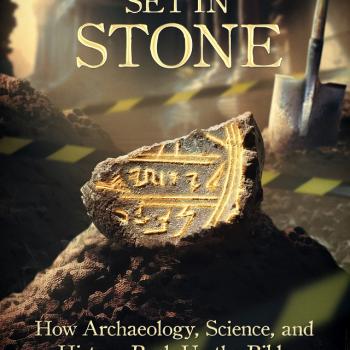Lectionary Reflections on Matthew 22:15-22
Sunday, October 16, 2011
Jesus the Mind Reader
In Matthew 21:23-22:46, we have eight units that fall into two groups. In the first four, Jesus' authority is challenged and he responds with 3 parables—the two sons, the wicked tenants, and the wedding banquet. In the second four (22:15-46), various antagonists make several attempts to trap him on the issues of taxes, resurrection, the greatest commandment, and David's son (Hare, 244).
This week's text is the second attempt to trap Jesus, the question about taxes (Matthew 22:15-22). I begin by slowly reading verses 15-17, trying to pretend I'm reading it for the first time with no background. As I do two, questions come to mind. First, why would these people want to trap him? Second, why am I getting a feeling of insincerity from their affirming comments to Jesus? (22:16, 17) The fact that their affirming words are true (Jesus really is genuine; he really is a faithful teacher of God's way who is not swayed by public opinion) doesn't diminish my misgivings about them.
Jesus immediately hits both nails on the head: "Why do you test me, you hypocrites?"
Matthew tells us that "Jesus knew their evil motives" (22:18). Jesus' knowledge of people's faith, fear or distress in Matthew's gospel can at times be chalked up to reasonable inference (9:2b; 9:22; 9:36; 17;7; 28:10). But not always. On six occasions, Matthew explicitly states that Jesus knows the thought or secret actions of others. Four of those occasions have to do with Jesus reading the minds of Jewish leaders (9:4; 12:15; 12:25; 22:18). Jesus' knowledge of their thoughts and motives allows him to confront them verbally in 9:4b; 12:25b and 22:18b, and to escape in 12:15. It also allows the reader to see the wickedness of those opposing Jesus and prepare for his or her part in Jesus' death.
Two times when we are told Jesus reads minds, it is his disciples' minds he is reading. In 16:7, they don't understand Jesus' warning about the leaven of the Pharisees and Sadducees. In 26:8-9, they are angry with the woman who anoints Jesus with oil. In both cases, Jesus' knowledge allows him to chastise and instruct the disciples.
Jesus' insights aid the reader in every case. They reveal something about each character or group we wouldn't have known otherwise (Anderson, 73-74).
The Trap is Set
These controversy stories (22:15-22:46) hold a critical position in Matthew's narrative flow. They are the Jewish leaders' counter attack to his three parables of judgment (sons, tenants, banquet) and their last attempt to overcome Jesus in a verbal duel. The various parties of Judaism take turns trying to trip Jesus up with some question dear to their party's point of view. None is successful. (Meier, 155)
In this passage about paying tribute, two parties (Pharisees and Herodians) who hold opposite views on paying tribute to Rome join forces to try to entrap Jesus. They seek to impale him on one or the other horns of the dilemma. The Pharisees resented the Roman occupation, though they accepted it as a necessary evil and counseled submission as long as Rome did not interfere with the practice of religion. Still, they were angered by the Roman poll tax. Paying it was an admission that Israel was in bondage to pagan foreigners; the coin bore a graven image of Caesar. The Herodians were supporters of Herod Antipas and made up a secular political party that supported his right to rule Palestine. They were pro-Roman by necessity, since no one could rule any part of the Mediterranean world without Rome's approval (Hare, 253).
So here are two parties whose only point of agreement is their fear and hatred of Jesus. The Pharisees object to the tax on religious grounds. The Herodians support it on political grounds.
Jesus Evades the Trap
They are hoping his answer will alienate at least one of the groups they represent.
Instead, Jesus asks them to show him a coin that would be used to pay the tax. They bring it to him. His implied message is: You are the ones who carry and traffic in such coins that bear Caesar's image, not me (Meier, 155). To carry and use them is to acknowledge Caesar's sovereignty. To be consistent, you should acknowledge God's sovereignty over your land and life by giving to the God who forbid the making of graven images. Tertullian long ago made the point that the saying may refer implicitly to humans as God's coin, bearing God's image. Our tribute to Caesar cannot demean or contradict our tribute to God, that is our full obedience and loyalty (Hare, 254).





